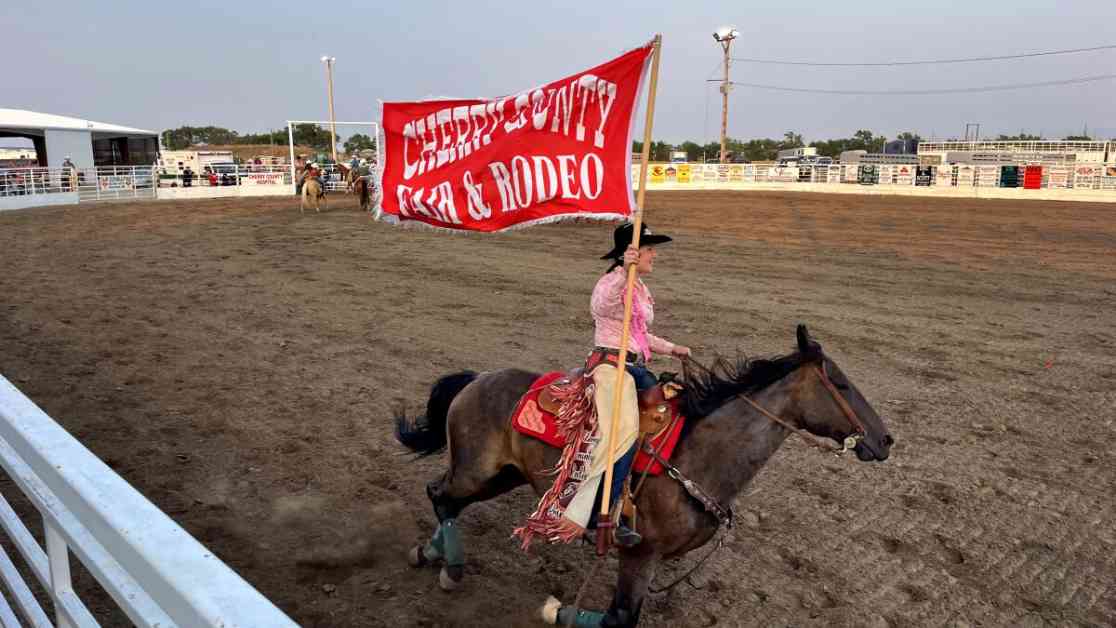Tim Walz, the Democratic governor of Minnesota, has roots in the rural town of Valentine, Nebraska. As the running mate of Vice President Kamala Harris, Walz’s hometown has been thrust into the national spotlight. Valentine, with a population of 2,600, is a community rooted in ranching and agriculture, where conservative values run deep. The juxtaposition of Walz’s rural upbringing with his Democratic politics presents a unique challenge in a town where former President Trump won 87% of the vote in 2020.
A Fifth-Generation Valentinian, Mayor Kyle Arganbright, serves as a local Tim Walz tour guide, showcasing the places that shaped the governor’s formative years. From the football field of the Valentine High School Badgers to the tree-lined street where the Walz family once lived, Arganbright provides insight into the town’s conservative leanings. Despite the pride in a hometown boy making it onto the national stage, many residents remain steadfast in their Republican beliefs. The prospect of Walz flipping votes in a town where Republican values reign supreme is met with skepticism by Arganbright and others.
The rural-urban political divide is stark, with Valentine serving as a microcosm of the larger national landscape. While Harris hails from the liberal stronghold of the Bay Area in California, Walz’s background in rural Nebraska presents a stark contrast. The Democratic Party sees Walz as an opportunity to expand their appeal in predominantly white rural areas that have long been Republican strongholds. However, the challenge of winning over voters who have historically aligned with the GOP remains a significant hurdle for Walz and Harris.
The 2022 midterm elections saw a significant disparity in rural and urban voter support, with 69% of rural voters backing Republicans compared to 29% for Democrats. This divide underscores the uphill battle faced by Democrats in rural America. Despite efforts to bridge the gap, the entrenched political loyalties in places like Valentine pose a significant challenge for candidates like Walz and Harris. The push to connect with rural voters and address their concerns is a key focus for the Democratic Party as they seek to regain ground lost in recent years.
### Rural Roots and Political Identity
Walz’s upbringing in Valentine and Butte, Nebraska, plays a central role in his political identity. The small-town values instilled in him during his formative years continue to shape his approach to governance and policymaking. While some in rural Nebraska may view Walz as a “West Coast wannabe,” his ties to the heartland run deep. The selection of Walz as Harris’ running mate reflects a strategic move by the Democratic Party to appeal to rural voters and broaden their support base.
In places like Cherry County, where the population has seen a decline and residents grapple with economic challenges, the presence of a hometown politician on the national stage offers a glimmer of hope. The issues facing rural communities, from job losses to a lack of affordable housing, are front and center in this election cycle. Walz’s experience growing up in rural America gives him a unique perspective on these challenges and positions him as a candidate who understands the needs of rural voters.
### Bridging the Political Divide
The divide between rural and urban America has only grown wider in recent years, with political polarization reaching new heights. The rural-urban split is evident in places like Valentine, where the political landscape is deeply conservative. The challenge for candidates like Walz and Harris is to find common ground with voters who may not align with their party’s platform. By highlighting his rural roots and connecting with voters on a personal level, Walz aims to bridge the political divide and appeal to a broader swath of the electorate.
The rural-urban political divide is not insurmountable, but it requires a nuanced approach to engage voters across different backgrounds and beliefs. For Walz and Harris, the key lies in understanding the unique challenges facing rural communities and offering solutions that resonate with voters. By listening to the concerns of rural residents and addressing their needs, candidates can build trust and forge connections that transcend political affiliations.
As the election season heats up, the spotlight on rural America grows brighter. Candidates like Walz and Harris must navigate the complexities of rural politics while staying true to their values and principles. The road to victory in rural communities is paved with challenges, but with a strategic approach and a commitment to engaging with voters, candidates can make inroads and build support in areas that have long been considered Republican strongholds.
In the end, the success of candidates like Walz and Harris in rural America will depend on their ability to connect with voters on a personal level and offer solutions that address the unique challenges facing rural communities. By highlighting their rural roots and engaging with voters in meaningful ways, candidates can build support and broaden their appeal in areas that have long been dominated by conservative politics.



























